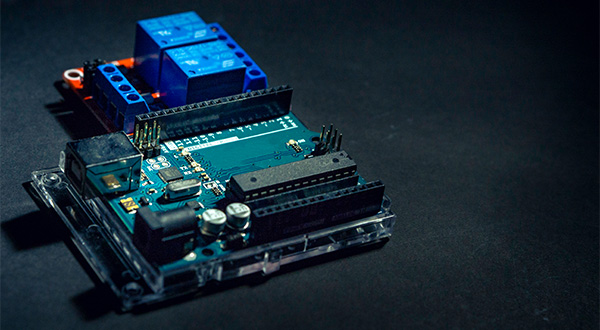Why is IoT & Automation the Future of Business?
The term, Internet of Things (IoT) has been lingering over almost every industry for many years now. This topic of conversation has shifted from what once was a buzzword into what is now, without a doubt, a reality. A plethora of new and exciting IoT devices and business applications are emerging at an exponential rate each day. Although this may be the case, very few businesses understand how they can benefit from the Internet of Things and how using it to automate processes can drive them to new levels of profitability. If you’re looking to experience the benefits of automation within a connected world, check out our IoT SIMs for your connected devices.
What is holding businesses back from deploying IoT solutions
The lack of enthusiasm to delve into the connected world may be caused by a number of factors. Some business owners have concerns around the security of IoT, and some are simply set in their ways. But we found that the most common reason for not giving IoT a second look is the lack of education.
Learn more about the challenges of IoT connectivity.
How automated IoT can help you at home
The connected coffee example simply explains how your morning alarm or mobile phone can trigger your coffee machine. Although it’s a satisfying gimmick to wake up to a steaming cup of coffee, it won’t cause any business owner to invest their time and money into this growing technology. Admittedly we’re guilty of using this example too, but decision makers deserve to understand the business benefits of utilising IoT. That’s why we’ve taken the time to collate some of the main advantages for companies around the world.
How IoT can help with automation
The internet of things, or IoT, is a system of interconnected devices and sensors that collect and share data. One of the many advantages of IoT is that it can help with automation. Automation can increase efficiency, productivity, and accuracy while reducing costs and up-time.
For example, let’s say you own a manufacturing company that produces widgets. Traditionally, you would have needed workers to assemble widgets by hand. With automation, robots can do the work for you. This not only reduces the amount of time it takes to produce these widgets, it also cuts down on labour costs and allows your manufacturing process to run 24/7.
IoT can also be used to automate tasks in your personal life. For example, sensors can track when you leave work at the end of the day, automatically turning your lights and heating on ensuring that your smart home is the correct temperature for your arrival.
How business can profit from automation with IoT
There are a wide range of opportunities for businesses to benefit from the implementation of IoT within their business, from improving supply chains to simply enabling communication between two or more remote devices. IoT technology can be as simple to implement as your standard cloud computing solutions. Some easily realised benefits of IoT are:
IoT and accuracy
For many businesses, reducing errors is a main priority, human error is something that is often overlooked or discounted when refining processes and controlling costs. By implementing industrial automation capabilities to processing or manufacturing machines, and allowing them to control themselves automatically, fewer members of staff are needed to complete certain tasks, significantly reducing the opportunity for human error.
Increase up-time with the IoT
Another advantage of automating your business processes using IoT is an increase in up-time. As we all know, your human workers cannot work around the clock, they come into work at a specific time and leave at another. This means that your business is only open for a certain number of hours per day (unless your staff’s shifts overlap). Machines on the other hand, aren’t restricted by time. Automating your business processes via the Internet of Things will allow them to run 24/7.
Although there are a lot of ethical arguments that arise when it comes to automation of business (due to the ‘loss’ of jobs), there needn’t be. We aren’t suggesting you make your entire workforce redundant and replace them with robot workers. Human jobs will definitely remain a necessity as machines need to be programmed and maintained.
In traditional businesses, engineers are often employed to fix faulty machinery and devices if something goes wrong. Unfortunately, this usually involves a lot of testing to find the faulty component. A lot of time is wasted during this process and your business is paying for that loss of efficiency.
When a process is automated, your own network of IoT devices will notify your engineers of exactly where and what the problem is. This way the problem can be identified and fixed quickly, reducing the amount of downtime you would have previously experienced.
Optimise maintenance
Preventative maintenance is key to running your machines successfully in the long term. IoT-enabled machines will be able to complete preventative maintenance or order servicing/parts on their own before they are even required, rather than a business having to wait for an issue to occur and then having a 4-6 week wait on a part leaving them out of action.
IoT analysis and monitoring
The beauty of IoT smart devices isn’t necessarily the improved performance of business processes. In a modern-day business, analytics and logistics are becoming more and more important as technology develops. Understanding why a problem has occurred or identifying areas of improvement is getting much easier because of this.
A great example of how IoT can be used to monitor business processes is within the fleet management industry. By equipping each vehicle within a fleet with a GPS Tracker and an M2M SIM card, each vehicle can be located and monitored in real-time. Temperature sensors can also help during manufacturing processes. They not only provide real time control of your operations, they also enable you to make adjustments or switch your systems off when the optimum temperature has been achieved.
Almost any process can be monitored with the help of IoT as long as you have the right IoT sensors, equipment and automation processes implemented. The same goes for remotely accessing devices such as CCTV and digital signage.
Automating business systems with IoT
If you’re looking to implement an IoT system within your business, InfiSIM’s IoT SIMs are reliable, provide brilliant connectivity and can be scaled to grow with your business.
Get in touch to learn more.


